Accessing WhatsApp with MiaProxy
WhatsApp is one of the most popular messaging apps in the world, but it may be blocked in certain countries or on certain networks. MiaProxy can help you access WhatsApp by routing your internet connection through a different server, bypassing any blocks or restrictions. Here's how you can use MiaProxy to access WhatsApp:
Step 1: Sign up for a MiaProxy account
To start using MiaProxy, you'll need to sign up for an account. Go to the MiaProxy website and click on the "Sign up" button. Fill out the registration form and create your account.
Step 2: Download and install the MiaProxy app
Once you've created your account, you'll need to download and install the MiaProxy app on your device. You can find the download links on the MiaProxy website. The app is available for Windows, Mac, iOS, and Android.
Step 3: Connect to a server
Open the MiaProxy app and log in with your account. Once you're logged in, you'll see a list of servers to choose from. Select a server in a location where WhatsApp is not blocked and connect to it.
Step 4: Open WhatsApp and start chatting
With the MiaProxy app connected, you can now open WhatsApp and start chatting as usual. Your connection will be routed through the server you selected, bypassing any blocks or restrictions on your network.
Step 5: Disconnect when done
When you're done using WhatsApp, be sure to disconnect from the MiaProxy server to ensure your internet connection is secure and private.
Frequently Asked Questions
Q: Can I use MiaProxy to access WhatsApp on my school or work network?
A: Yes, MiaProxy can help you bypass restrictions on your school or work network and access WhatsApp and other blocked websites.
Q: Is it safe to use MiaProxy to access WhatsApp?
A: Yes, MiaProxy uses state-of-the-art encryption to protect your connection and keep your data secure. Your online activities will also be kept private and anonymous.
Q: How many devices can I use with my MiaProxy account?
A: You can use your MiaProxy account on multiple devices, depending on the plan you choose. Check the pricing page for more information.

What are HTTP and HTTPS Proxies?
HTTP and HTTPS proxies are commonly used in the world of web browsing and internet access. While both types of proxies serve similar purposes, there are a few key differences between them

Parental Control At Home Using Proxy
Parental control is a crucial aspect of raising kids in today's digital age. The internet can expose children to inappropriate content and put them at risk of encountering cyberbullying, harassment, or worse. To keep children safe online, many parents use parental control software, which blocks certain websites or limits access to the internet altogether. However, these solutions can be circumvented or defeated, leaving children exposed to harmful content. A proxy server is a powerful tool that can be used to enhance parental control and protect children online

Choosing Proxies For Sneakers
When it comes to buying sneakers, you need to be quick, and the right proxies can help you achieve this. Proxies are essential in securing a sneaker purchase online, especially for popular releases that can sell out in minutes. In this article, we will discuss the factors you should consider when choosing proxies for sneakers, so you can improve your chances of getting your desired sneakers.

Managing Multi Accounts with MiaProxy
Managing multiple accounts on various platforms can be a daunting task, especially when it comes to maintaining the anonymity of those accounts. This is where a proxy comes in. A proxy allows you to access the internet through a different IP address, thus masking your actual location and making it appear as if the accounts are being managed from different locations

How Decentralized Residential Proxy Works?
A decentralized residential proxy is a new way of providing proxy services that utilizes peer-to-peer technology. Instead of relying on a central server, a decentralized residential proxy network is made up of multiple nodes, or individual devices, that work together to provide proxy services. This allows for a more robust and resilient network, as there is no single point of failure

